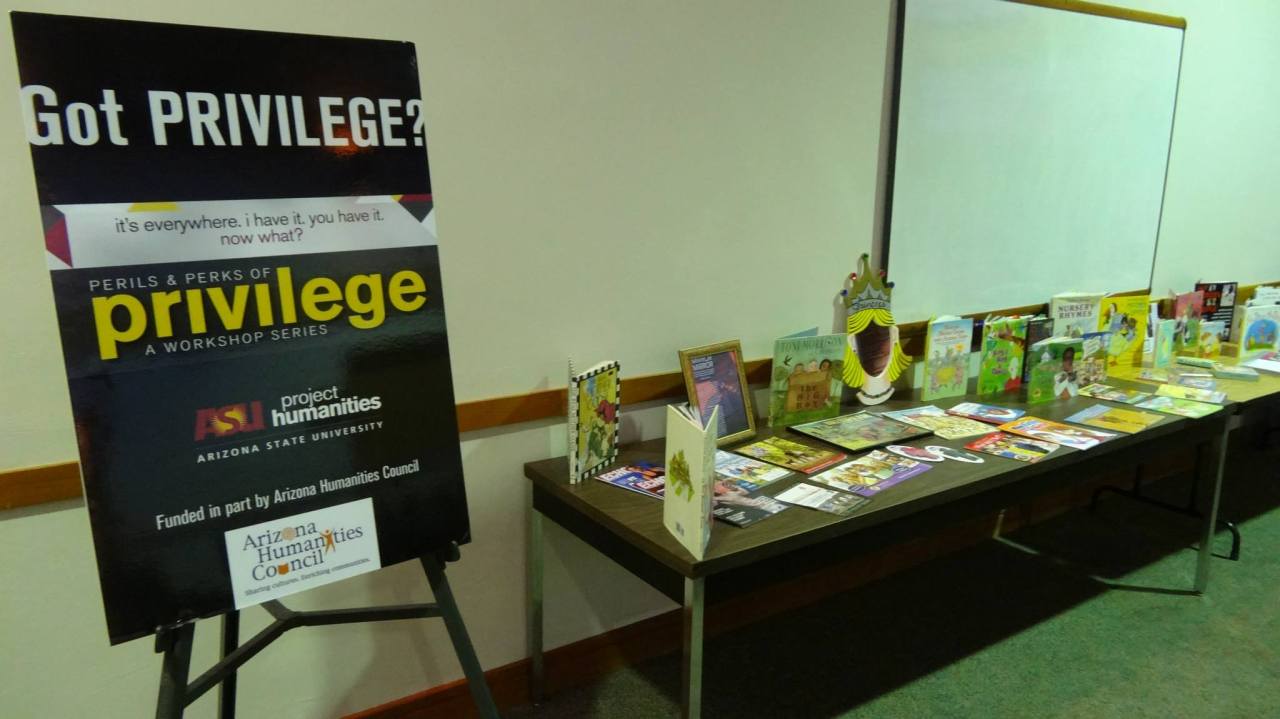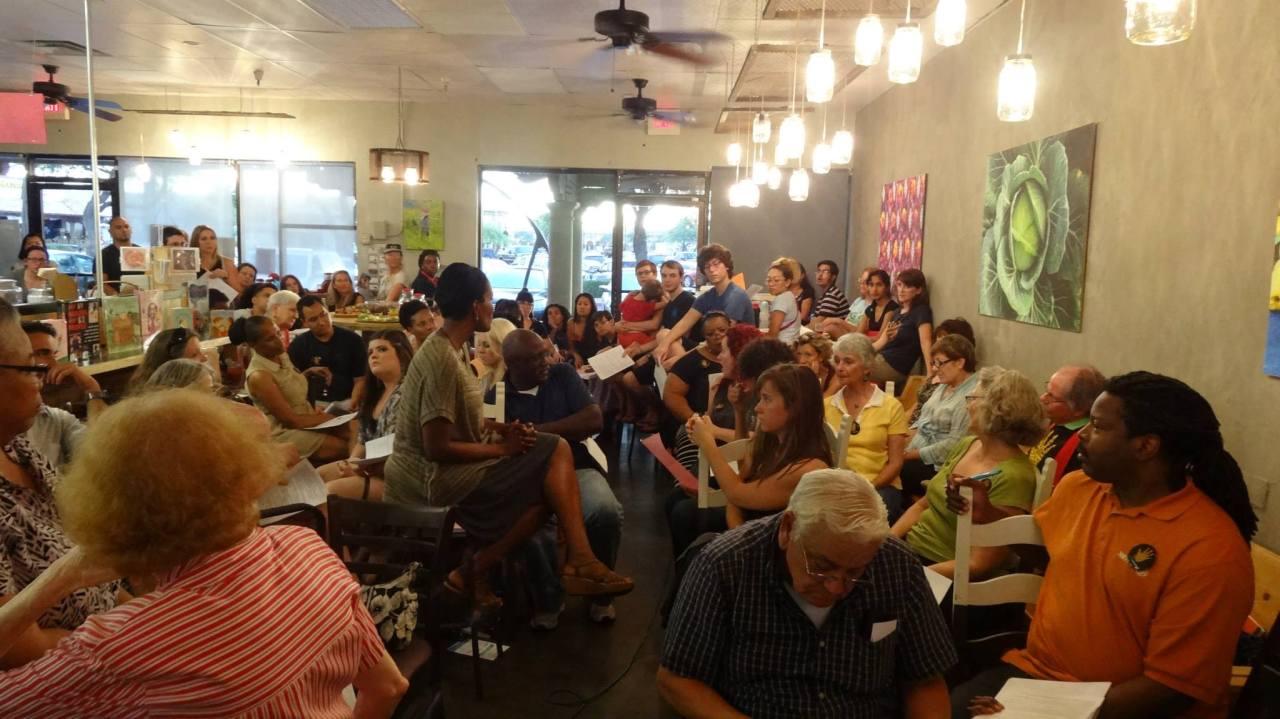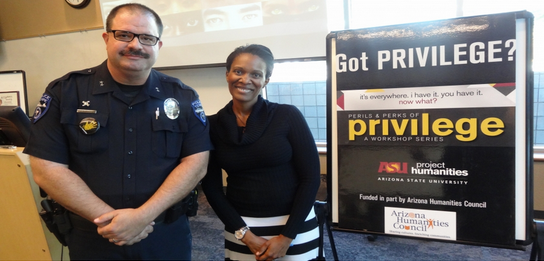Sunday, February 22, 2015
As the PEW research center finds, 87% of Christians, no matter country they live in, find themselves being a part of the majority religion in their society. Anybody whose willing to drive two blocks down their neighborhood could confirm that America is no different.
Most Christians don't think twice about how their Religion effects how people treat them -- that's because being a Christian is relatively normal in our society. Meanwhile, thousands of others are discriminated for their beliefs: the Jewish, the Muslim, even Atheists. Too often, having one of these faiths is seen as a cultural or moral blemish. The reality of the world that we live in a culture not of Christian persecution, but Christian privilege.
Last week, we witnessed the death of three innocent Chapel Hill students who were killed because they were Muslim. The news doesn't cover things like this often, but let it be known that -especially to Muslims- hate crimes like these are far from being rare occurrences. In fact, According to the FBI's Criminal Justice Information Services Division's most recent report, 16.9% of hate crimes are motivated by racial bias.
But bias isn't just defined by violence. It's the little things.
Last month, Buzzfeed released a video of what happened when four women decided to wear a hijab for a day.
None of these four women were attacked, but they did experience bias. People stared, some were excessively nice to them; one of the women wearing a hijab was even told that she "[didn't] have to wear that in America." Overall, they were treated differently.
Granted, bias against Islam is a form of both religious and cultural bias, but that's not the point. The point is, as a Christian, I don't have to worry about my safety if I choose to wear a cross. I don't have to worry about being called a terrorist or old fashioned. As a Christian, I live in a world without fear of violence or ridicule, while people of other religions do every single day.
Christian privilege is yet another form of privilege because most people bias against those of other religions, and here in America, there is an overwhelming majority of Christians who, like anybody else, are prone to inherently judge those of different faiths. Just like we can't persecute those of different races, genders, and abilities, we can't persecute people because of their race. Most of all, those who are a part of the majority, just like those who are able-bodied, male, or white, Christians need to openly admit the privilege that they have in this culture and help lessen the burden of fellow humans who are victimized because of their differences.
Most Christians don't think twice about how their Religion effects how people treat them -- that's because being a Christian is relatively normal in our society. Meanwhile, thousands of others are discriminated for their beliefs: the Jewish, the Muslim, even Atheists. Too often, having one of these faiths is seen as a cultural or moral blemish. The reality of the world that we live in a culture not of Christian persecution, but Christian privilege.
Last week, we witnessed the death of three innocent Chapel Hill students who were killed because they were Muslim. The news doesn't cover things like this often, but let it be known that -especially to Muslims- hate crimes like these are far from being rare occurrences. In fact, According to the FBI's Criminal Justice Information Services Division's most recent report, 16.9% of hate crimes are motivated by racial bias.
But bias isn't just defined by violence. It's the little things.
Last month, Buzzfeed released a video of what happened when four women decided to wear a hijab for a day.
Granted, bias against Islam is a form of both religious and cultural bias, but that's not the point. The point is, as a Christian, I don't have to worry about my safety if I choose to wear a cross. I don't have to worry about being called a terrorist or old fashioned. As a Christian, I live in a world without fear of violence or ridicule, while people of other religions do every single day.
Christian privilege is yet another form of privilege because most people bias against those of other religions, and here in America, there is an overwhelming majority of Christians who, like anybody else, are prone to inherently judge those of different faiths. Just like we can't persecute those of different races, genders, and abilities, we can't persecute people because of their race. Most of all, those who are a part of the majority, just like those who are able-bodied, male, or white, Christians need to openly admit the privilege that they have in this culture and help lessen the burden of fellow humans who are victimized because of their differences.
Sunday, February 8, 2015
So the Super Bowl was exactly one week ago, which means I may be late to the party, but I still felt like Alway's "Run Like a Girl" ad was worth mentioning. Growing up, "Like a girl" was always something I heard with a negative connotation, but it never really put me down, I just accepted it. I was a girl and therefore I ran slower, I couldn't throw, I wasn't as smart. Looking back, I know that it isn't the phrase that is harmful, but the perpetuated stereotypes that I was fed growing up. A couple of my friends and I were going over this topic last week and many recalled vivid memories of their parents putting an overbearing emphasis on being feminine when they were younger.
What makes this ad so important isn't just the empowering message it gives to young girls. As the advertisement already shows, the girls featured in this video are virtually unaware of the gender bias ringing in the statement "like a girl." The key to this video's success is it's true audience: adults, current or future parents and members of society who actively reinforce these stereotypes. Sure, it's inspiring to girls, but it also challenges members of society to re-think the phrase "like a girl" and to rethink these stereotypes in general. If it's simple for a group of kids, then it should be simple for us too, right?
Kudos to the #LikeAGirl campaign that is moving in so many ways!
Sunday, February 1, 2015
Earlier this week Disney released its design for their first Latina princess ever. Corks were blown off of campaign bottles, parades filled the streets, and the media celebrated this leap in pop culture diversity. All for basically no reason at all. The initial problem here is that we are waaay past due for a Hispanic princess; however, there are enough flaws with Elena of Avalor that Disney should consider going back to the drawing board with this one.
The special irony here is that just like Latinos in the real world, Elena too is being marginalized in her land far far away. Unlike the first Arabic princess, the first African American princess, or the abundance of white princesses Disney has released, Elena's debut will not be on the silver screen, but on the children's show Sophia the First. Sadly, Elena is nothing more than a supporting role in a show where her appearance is likely going to be swept under the rug and forgotten.
Also, in a statement made by a senior vice president of Disney Junior, Nancy Kanter, it was revealed that "All [Sophia] characters come from fantasy lands that may reflect elements of various cultures and ethnicities but none are meant to specifically represent those real world cultures." Meaning, the actual culture of Latin Americans will not be represented along with Elena, which is arguably what gives the introduction of the character purpose. It isn't about the quotas or the skin color, but the accurate representation of individuals who are being underrepresented in society. When it comes to this standard, Disney is completely missing the mark.
There has been talk about Elena getting her own spinoff series in 2016, there is still room to be pessimistic. After all, it is very likely that creation was not a part of the original Sophia blueprints, but to rectify a PR mishap when Disney Junior originally announced Sophia the First and producers labeled the series's obviously Caucasian main character, Sophia as Latina. Whatever the case is, the introduction of Elena is far from the break through that it is being presented as. Yes, it is great that Hispanic children will be presented with a character that they can finally relate to at 9:30 am/8:30c, but will Elena dolls get a spot on Disney Store shelves? Will there be Princess Elena Halloween costumes, lunch boxes, or backpacks? Will there be a Princess Elena at Disneyland? The answer to all of these questions, more than likely, will be no. So why should we be celebrating this as a victory?The bigger question is, what does this have to do with privilege?

As one of my girls began to show off the princess sticker book she got for Christmas, she made a remark that there were no big stickers of Princess Tiana and seemed deeply disappointed by this. Children can sense these disparities early on. According to an "animation census" released by Buzzfeed 71.% of Disney Princesses are Caucasian.
White children are given a mass of princesses they can look to based on the loose argument that most fairy tales are based off of European characters. Meanwhile, children of color continue to wait....and wait....and wait.
Disney needs to be more diverse. There's no doubt about that, but garlanding a minor character in a minor series is not going to cut it. I say go big or go home. Anything that falls short of "big" this late in the game in unacceptable. Here's to hoping Disney, along with other animation studios, start to become more brave with their character designs and more accurate with the society they represent. None-white people are not make-believe, so we should really stop acting like it.
Subscribe to:
Posts (Atom)
Search
Popular Posts
-
This weekend everyone on my Facebook feed seemed to be up in arms over Jaden Smith wearing a dress to coachella. I don't really und...
-
Last week I came across an article arguing that the word "thug" is the new "n----r." Could this be true? This ...
-
Earlier this week Disney released its design for their first Latina princess ever. Corks were blown off of campaign bottles, parades fill...
Powered by Blogger.


